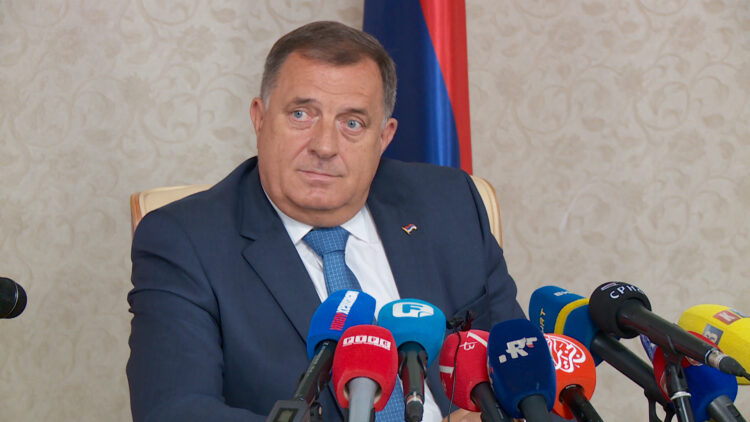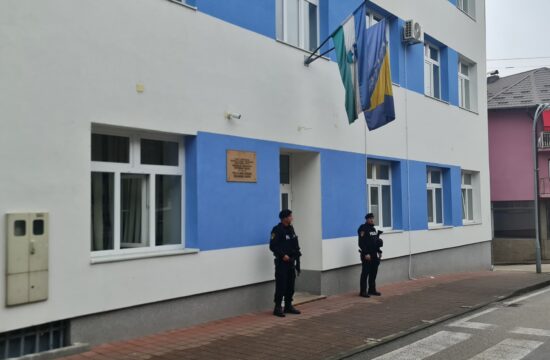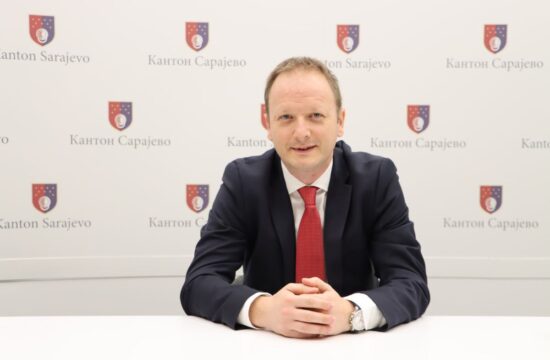
With the death of Momcilo Krajisnik, Bosnia’s Serb-majority region has lost one of its founders and the Serb people will be eternally grateful to him for what he has done for them, top Bosnian Serb officials said in their telegrams of condolences to the family of the convicted war criminal on Tuesday.
Wartime Bosnian Serb leader and first speaker of the parliament of Bosnia's Republika Srpska (RS) entity died on Tuesday in Banja Luka from complications related to COVID-19, the RS University Clinical Centre (UCC) said.
The Serb member of Bosnia’s tripartite Presidency, Milorad Dodik, expressed his condolences to Krajisnik’s family, praising him for his activities which led to the creation of the RS.
“Momcilo Krajisnik will remain inscribed with special letters in the history of our Republic and our people in Republika Srpska lost a sincere and true patriot with his departure,” Dodik said.
RS President, Zeljka Cvijanovic, said that Krajisnik will be remembered as a man who had the courage and the vision to “during the most difficult times for the Serb people, alongside others, make tough and historic decisions which led to the survival of the Serb people in Bosnia and Herzegovina.”
“With the founding the Assembly of the Serb People in Bosnia and Herzegovina, which would later become the RS National Assembly, Krajisnik, together with members of the first convocation of parliament, created the history of Republika Srpska, for which Srpska and the Serb people will be eternally grateful,” Cvijanovic said in her telegram of condolences to the Krajisnik family and the ‘Creators of Republika Srpska’ association.
Krajisnik was in 2006 sentenced to 27 years in prison for crimes against humanity, including extermination, murder, persecution, deportation, and forced transfer. He was acquitted of murder as a war crime, genocide, and complicity in genocide.
The judges of the International Criminal Tribunal for the former Yugoslavia (ICTY) found that Krajisnik was part of a joint criminal enterprise which carried out the extermination, murder, persecution and deportation of non-Serbs during the 1992 – 1995 Bosnian war.
He was acquitted of genocide or complicity in genocide on the grounds that the court had found no evidence of a genocidal intent on his part to destroy in full or part ethnic or religious communities.
The charges of murder and extermination were dropped in 2009 and the sentence was reduced to 20 years.
The ICTY judges found that while there was evidence that crimes committed in Bosnia constituted the criminal act of genocide, they did not establish that the accused possessed genocidal intent or was part of a criminal enterprise that had such an intent.





